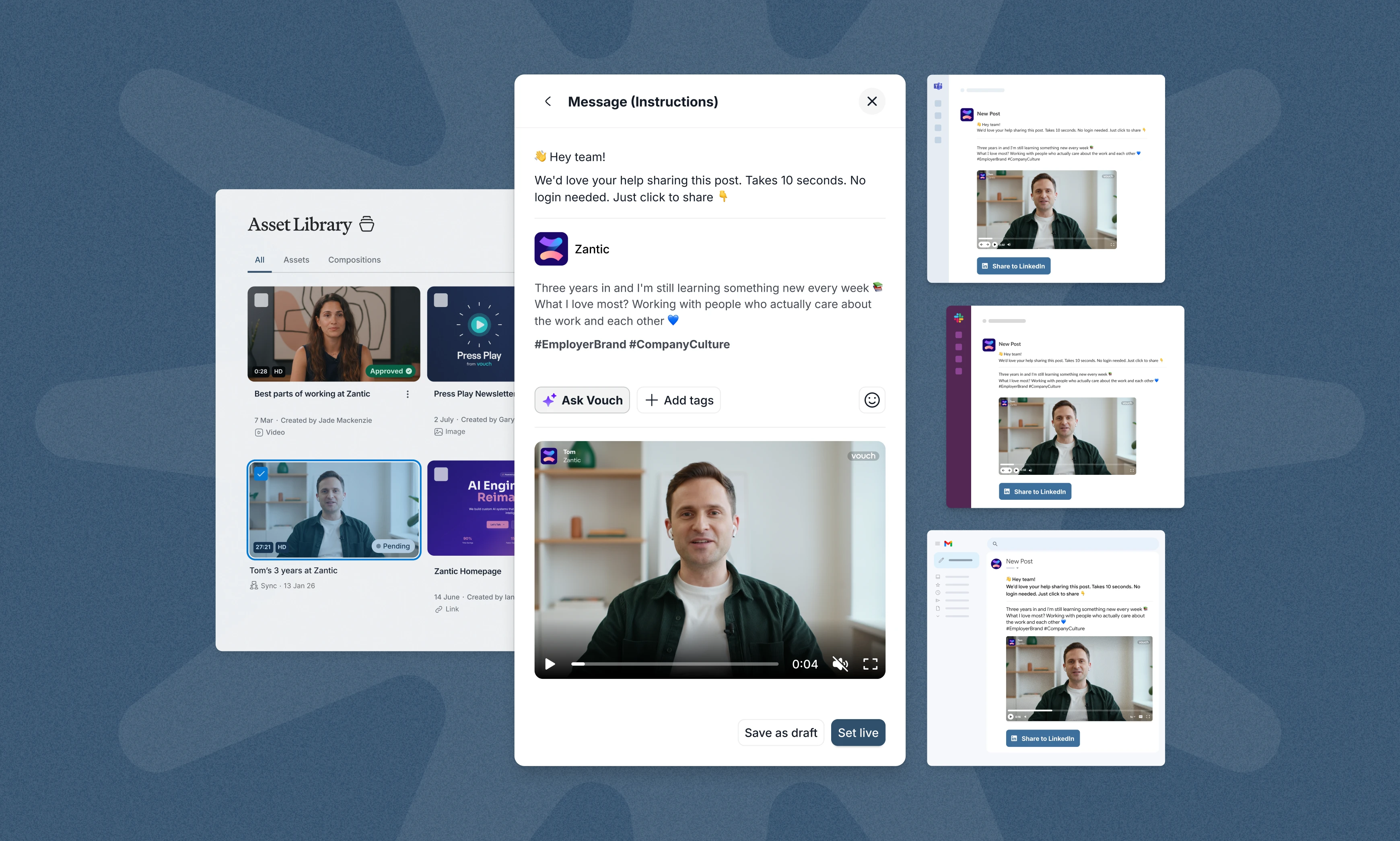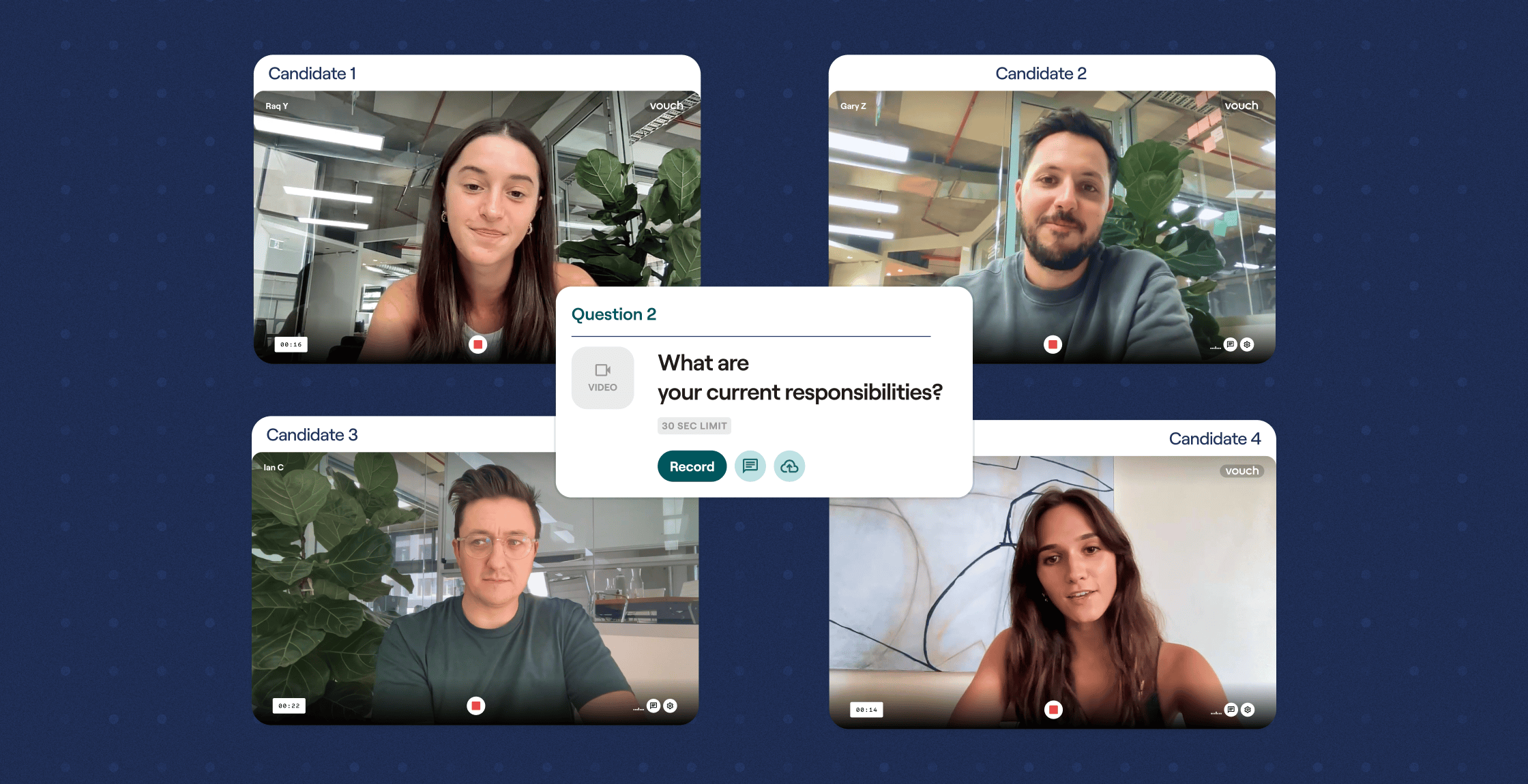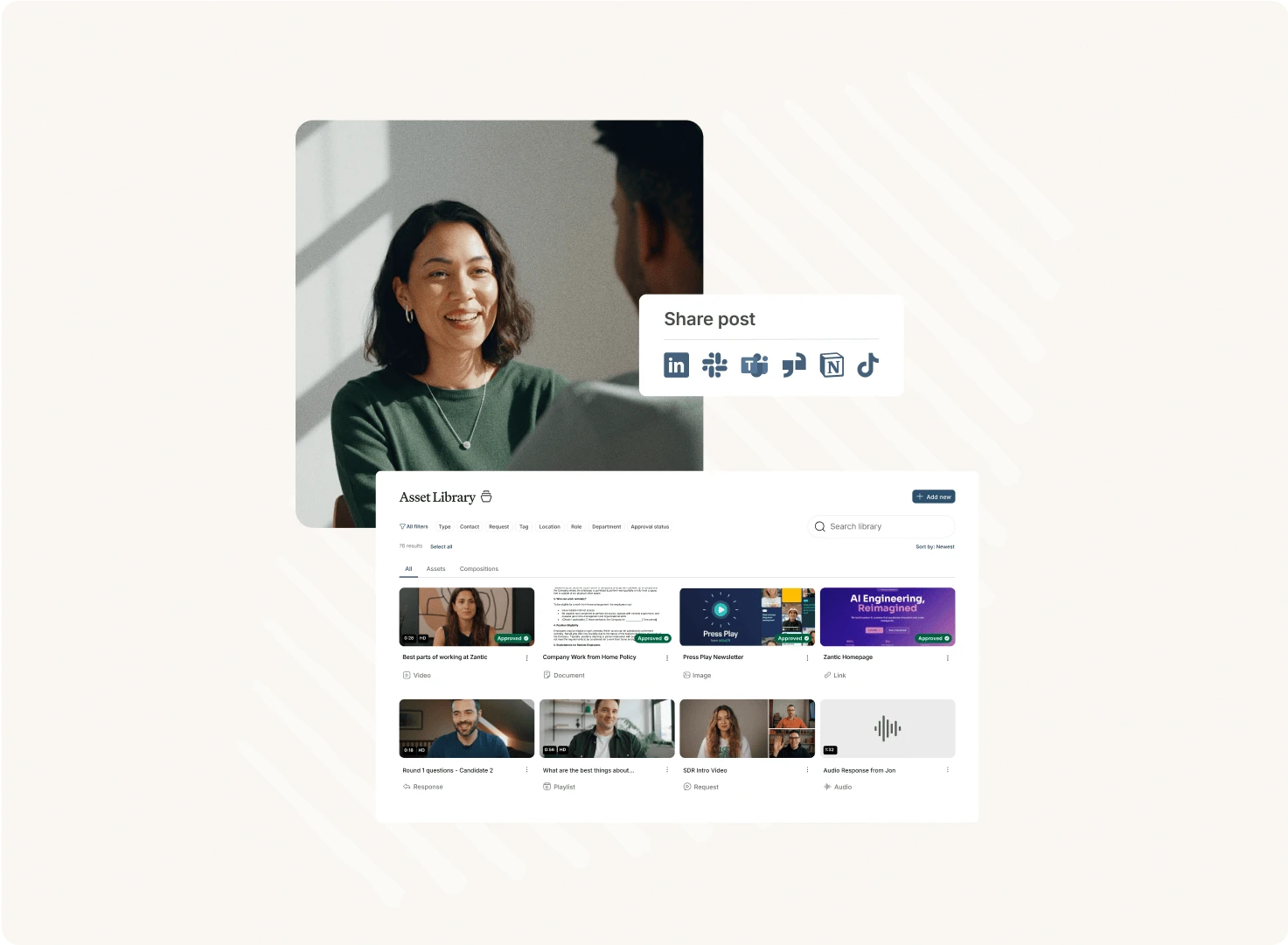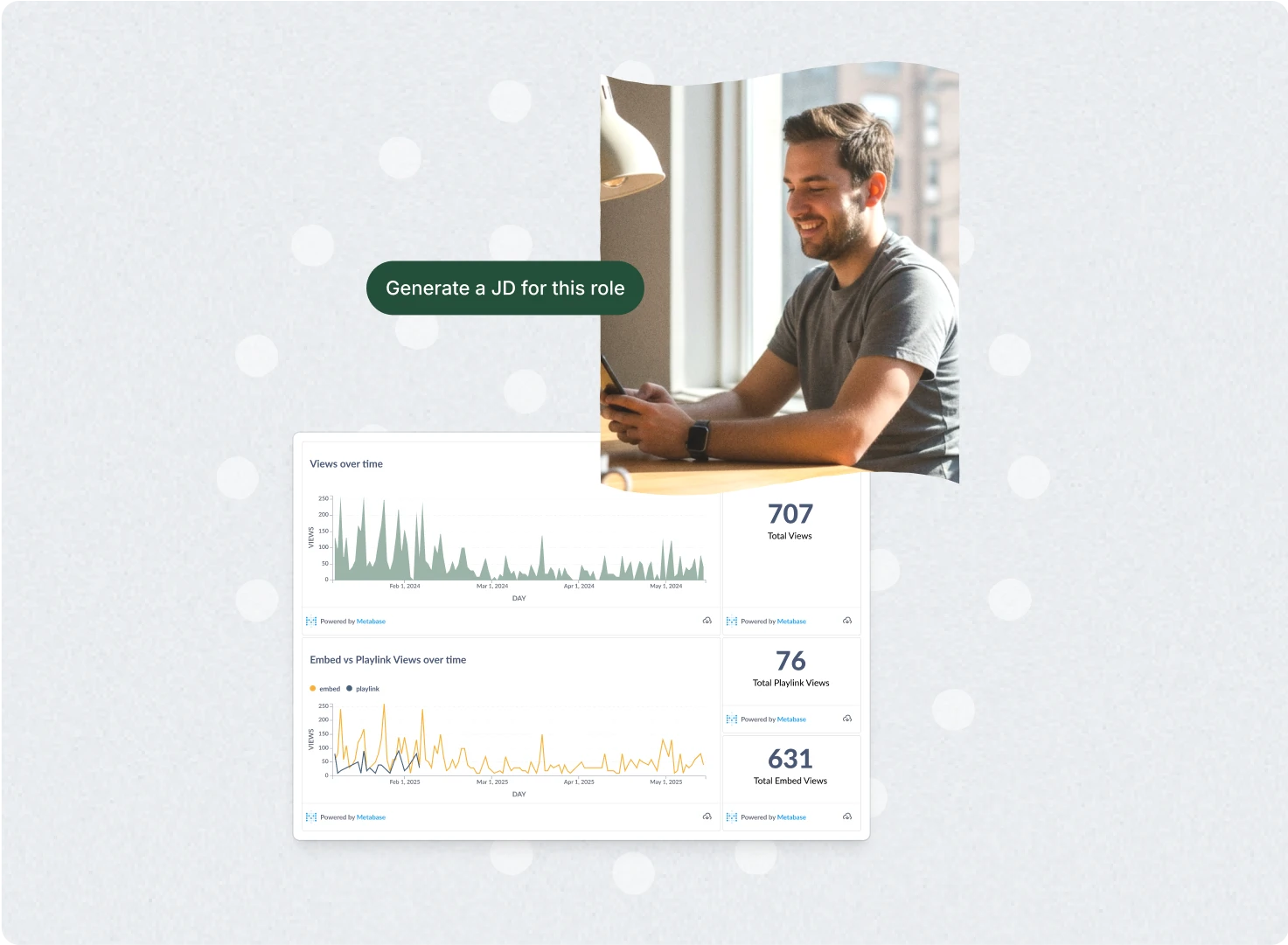The job market has changed.
Companies are no longer just filling seats; they're building long-term talent acquisition strategies to stay competitive in a constantly evolving landscape. One key role in making that happen is to have a Talent Acquisition Partner (TAP).
So, what exactly does a Talent Acquisition Partner do, and why is this role so critical?
Whether you're in HR, a hiring manager, or simply curious about the ins and outs of recruitment, this article will break down the entire role without any fluff or marketing jargon.
Let's dive in.
What is a Talent Acquisition Partner?
A Talent Acquisition Partner could be an internal or external resource that works closely with hiring managers and your business leaders to develop strategic hiring plans that align with the company's long-term goals.
Unlike a traditional recruiter who focuses mainly on finding qualified candidates and filling open roles, a TAP is a strategic partner who takes a big-picture approach to building a talent pipeline for both current and future roles through modern talent acquisition strategies.
The job is about much more than screening candidates - it's about understanding business objectives, the company's organizational goals, and the job market and then using that knowledge to develop an effective recruitment strategy.
The AI-enabled workspace for talent teams.
- Unified workspace for talent teams
- Accelerate hiring with AI tools
- Auto-generate polished hiring and employer brand content
- Easily repurpose assets across all channel
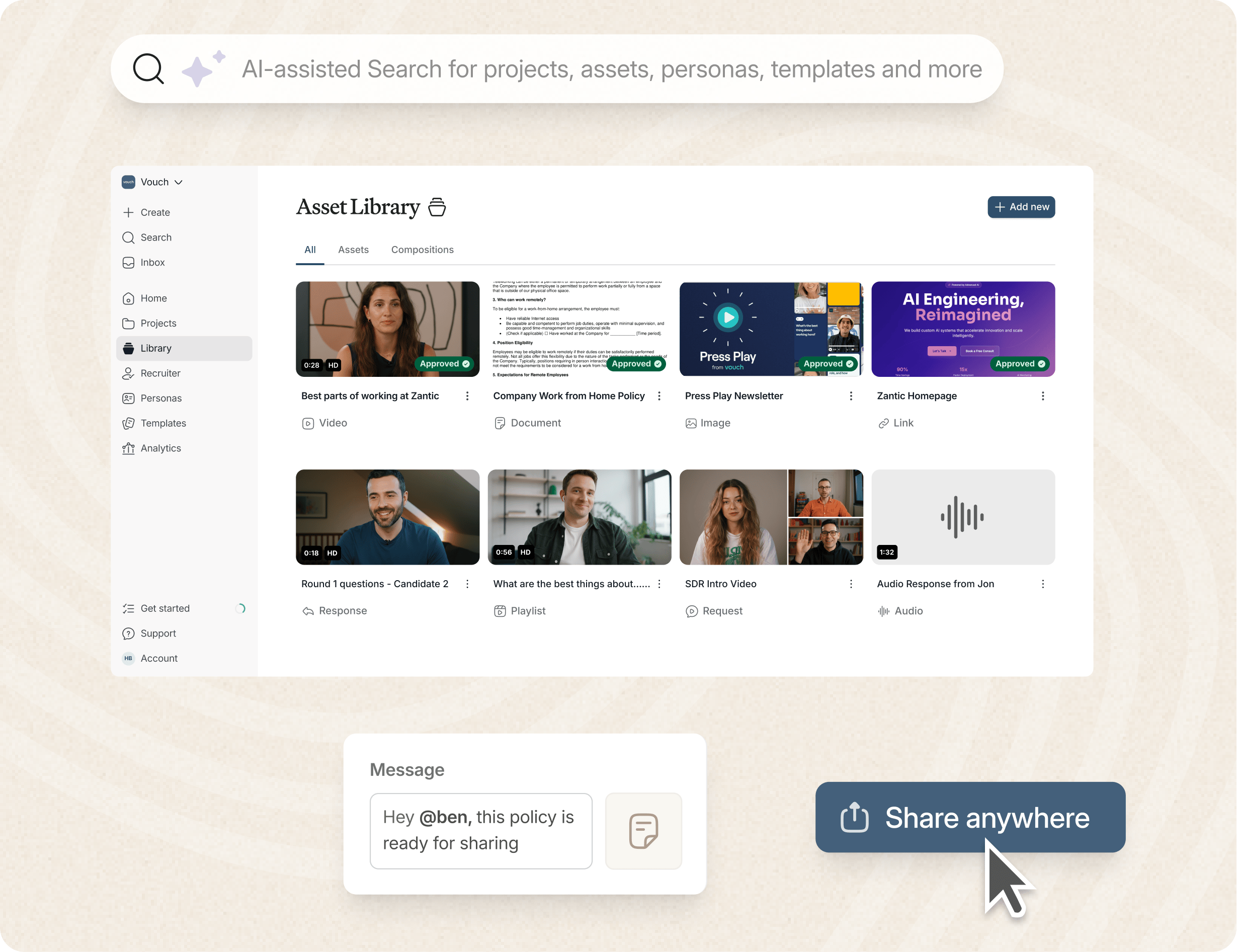
What are the 7 Key Responsibilities of a Talent Acquisition Partner?
While the role of a Talent Acquisition Partner can vary from company to company, their primary responsibilities generally include:
1. Developing measurable recruitment strategies
Working with senior leaders and management teams to design a strategic approach to talent acquisition.
2. Sourcing candidates and growing your candidate pool
Leveraging job boards, social media platforms, and other tools to identify both active and passive candidates.
3. Screening candidates
Conducting phone screenings, person interviews, and interview panels to assess the skills and cultural fit of potential hires.
4. Building long-term relationships
Establishing strong relationships with candidates to ensure a positive candidate experience throughout the entire hiring process.
5. Collaborating with your hiring managers
Acting as a strategic partner to hiring managers, helping them draft job descriptions, understand candidate expectations, and make informed decisions.
6. Building your employer branding
Promoting the company as an employer of choice through employer branding initiatives, industry events, and social media.
7. Analyzing and improving your recruitment metrics
Using data-driven insights to track recruitment success, including cost per hire, quality of hire, and employee turnover rates.
Why is a Talent Acquisition Partner So Important?
In 2026, the job market is more competitive than ever.
According to recent data from the Bureau of Labor Statistics, the U.S. job market remains tight, with an unemployment rate of just 3.5% as of July 2025 (BLS Source). Companies need to be proactive in finding the brightest talent and standing out in a crowded market.
This is where a Talent Acquisition Partner steps in. They don't just fill job vacancies - they're strategic partners who understand current talent sourcing strategies, the competitive landscape, and how to build a robust talent pipeline that meets the company's long-term growth needs.
What Are The Key Differences Between a Talent Acquisition Partner and a Recruiter?
While both roles involve recruiting, there are some key differences:
- Focus on Strategy: A TAP works closely with business leaders to align recruiting with organizational goals, while traditional recruiters are more task-oriented.
- Long-Term Approach: Talent Acquisition Partners are focused on building relationships for future talent needs, whereas recruiters are primarily focused on current vacancies.
- Broader Scope: A TAP typically has a broader role that involves employer branding, talent analytics, and recruitment technologies.
What's A Day in the Life of a TAP Look Like?
Every day as a Talent Acquisition Partner is different, but here's a snapshot of a typical day in the life of a TAP:
- Morning: Start the day with a meeting with the talent acquisition team to discuss the progress of various recruitment projects and review recruitment metrics like quality of hire and cost per hire.
- Mid-Morning: Meet with a hiring manager to refine a job description for a future role and discuss the best way to attract talented candidates in a competitive job market.
- Afternoon: Conduct phone and video screenings with potential candidates and build relationships with passive candidates identified through social media platforms.
- Late Afternoon: Work on an employer branding campaign, collaborating with marketing to ensure the company stands out as an employer of choice in the industry.
How Does a Talent Acquisition Partner Transform Your Hiring?
Imagine a mid-size tech company struggling to fill critical software engineering roles. The recruitment process was slow, and the company was losing out to competitors.
Enter the Talent Acquisition Partner, a dedicated TAP who overhauled the company's entire recruitment strategy.
Here's how:
- Employer Branding: The TAP worked with marketing to improve the company's online presence, particularly on employer review sites like Glassdoor and video content to really show the company culture, team and perks of the company.
- Talent Pools: They built a broader talent pool by attending industry events and using data-driven insights to refine sourcing strategies.
- Improved Candidate Experience: The TAP ensured that the candidate experience was smooth from start to finish, including quick turnarounds in the interview process and frequent communication with candidates.
And while results may vary, it's not unusual for an experienced TAP to help fill critical vacancies within 90 days while improving the quality of hire by 25%.
What Are The Trends in Talent Acquisition for 2026?
Let's take a quick look at the industry trends that are shaping the role of the Talent Acquisition Partner:
- AI and Recruitment Technologies: From AI-powered screening tools to data analytics, technology is making recruitment faster and smarter: HR Tech News.
- Employer Branding is Everything: In a tight job market, standing out as an employer of choice is essential. Companies with strong branding are three times more likely to make a successful hire: LinkedIn Talent Solutions.
- Focus on Diversity and Inclusion: Candidates are increasingly prioritizing companies that have strong D&I programs, which means Talent Acquisition Partners must keep this at the forefront of their recruitment strategies.
FAQs
What is a Talent Acquisition Partner?
A strategic partner who collaborates with hiring managers and business leaders to develop and execute long-term recruitment strategies and recruiting processes.
How does a Talent Acquisition Partner differ from a recruiter or talent acquisition specialist?
A TAP focuses on longer-term talent needs and candidate pool strategy, while a recruiter primarily focuses on filling immediate vacancies.
Why is employer branding important in talent acquisition?
Strong employer branding makes a company more attractive to top talent, especially in competitive markets.
What are the key metrics a Talent Acquisition Partner tracks?
Common metrics include quality of hire, cost per hire, and employee turnover rates.
How can a Talent Acquisition Partner improve the candidate experience?
By maintaining clear and regular communication and ensuring a smooth and efficient hiring process.
What role does technology play in talent acquisition?
AI and data-driven insights help improve recruitment efficiency and accuracy.
Is a Talent Acquisition Partner necessary for small businesses?
Yes, even small businesses benefit from strategic recruitment to ensure they hire the right people for long-term growth.
Conclusion: Why Every Business Needs a Talent Acquisition Partner
In a world where top-tier talent can make or break a company, the role of a Talent Acquisition Partner is more important than ever. Their ability to align recruitment strategies with business goals, build a robust talent pipeline, and create a positive experience for candidates makes them a pivotal role in today's competitive market.
By taking a strategic approach to talent acquisition, companies can ensure they're not just filling jobs—they're setting themselves up for long-term success.
See Why TA Partners Love Vouch!
Loved by companies like Canva, Nike, Cisco, HubSpot, Amazon, and more, tools like Vouch make leveraging video in your business remarkably easy.
Be sure to book a Vouch demo today and chat with a video content expert.
You might also like

Elevate Your Brand Today With Vouch
Discover how Vouch can accelerate talent acquisition while helping you stay on-brand.

